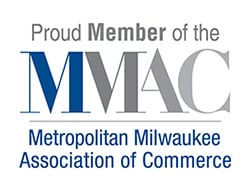Trust Administration in Wisconsin
Feel Secure with the Right Trust Attorney
The cycle of life and death are two uncontrollable entities. Death, specifically, may suddenly knock on your front door, completely unexpected. In estate planning, you want to know that your family will be properly taken care when once you are not with them anymore. At Angermeier and Rogers, LLP Law Offices, our caring trust attorneys want you and your family to have a plan in place in case the unthinkable occurs. Consider preparing a living trust to secure your loved ones’ futures.
Distribution According to the Rules
Trust Administration is the distribution and management of the deceased’s assets after death, according to the terms stated in their living trust document. A trust document, or agreement, contains rules written by the owner of the trust for the property held. This process doesn’t involve the courts, as long as the trust was funded before death.
Best Wisconsin Estate Planning Services from Angermeier & Rogers
We provide top asset protection and retirement planning services for Wisconsin residents – guiding them through the entire process. From Medicare to trust administration, our estate planning attorneys put you in the place you want to be for retirement and beyond.
Trustee Responsibilities
A trustee is the person, and a member of the board, who is designated in the trust to complete the Trust Administration. Trustee responsibilities include collecting the deceased’s property and making inventory lists, paying all debts, and distributing the remaining assets to beneficiaries. The trustee also collects all tax IDs, forwards mail, and files tax returns. In other terms, the trustee is a fiduciary, one who acts in someone else’s best interest, the beneficiary. Aside from a trustee, hiring a trust attorney may be to your benefit, giving you legal advice and extra guidance.
Trust Beneficiaries
A trust beneficiary is someone stated in the trust who receives the assets once the Trust Administration is complete. Beneficiaries differ from heirs, as heirs are blood relatives of the deceased. Beneficiaries can be anyone specified in the trust; including heirs, or even a specific charity. The receiving of assets can take anywhere from 60 days – 6+months. During this time, creditors or other parties have 60 days to make their claim, while the trustee files estate and inheritance tax returns. This should be done within 9 months. If real estate is sold during the Trust Administration, this process requires even more time. The trust is terminated once all of the deceased’s wishes are complete.
Cost of Lifetime Security
Compared to a probate, the Trust Administration costs less due to no court involvement. However, this process requires the same tasks as a probate. If you choose to hire a trust lawyer, their fees depend on the amount of work required and the asset value of the trust. Attorneys have their own fees and charge accordingly, sometimes based on hourly rates.
Choosing the right estate plan can be overwhelming, but with the guidance of our expert trust attorneys, we guarantee peace of mind for you and maximum benefits for your family. We care about your future and stretching every dollar to receive lifetime security.
Contact Angermeier & Rogers today for more information about our Wisconsin trust attorneys.



